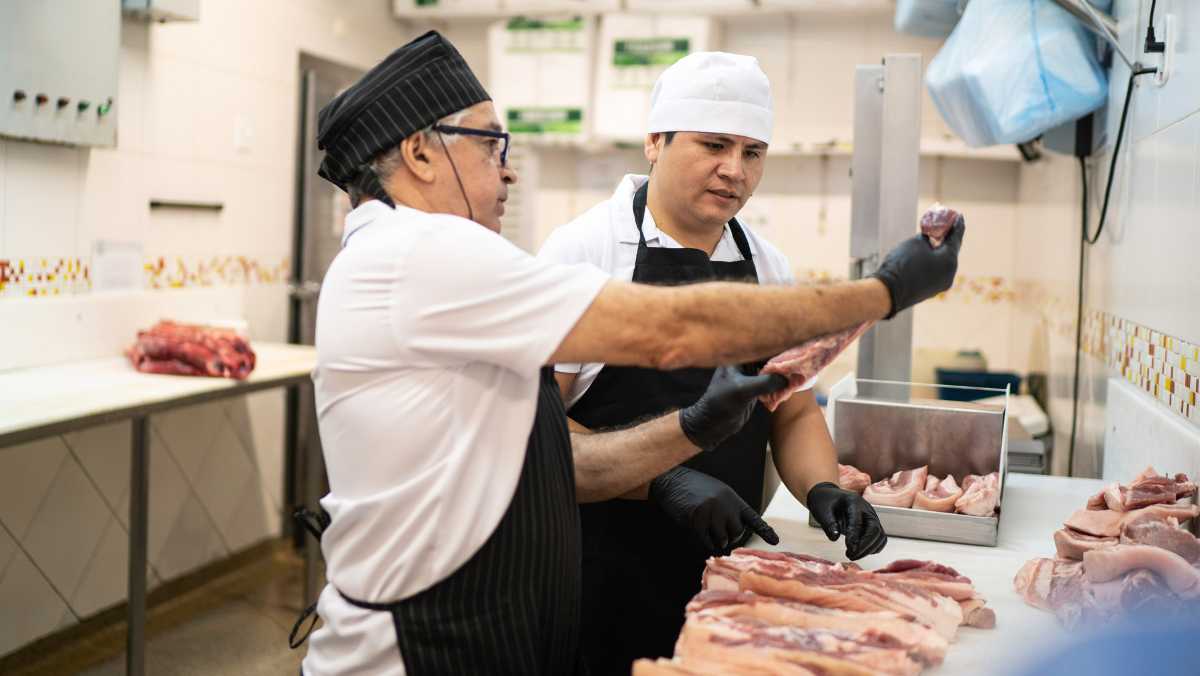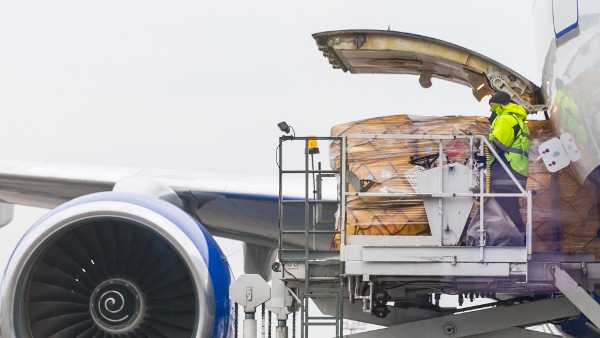Importing meat

- Marcel Hoebink
- The basis
- Edited 13 November 2025
- 9 min
- Managing and growing
- International
There are specific rules for importing meat intended for human consumption. Importers may only purchase meat from approved companies, which have to comply with European food safety requirements. Meat imported from a non-EU country is subject to mandatory inspections.
The Netherlands imports meat from different parts of the world, with major European suppliers including Germany, Belgium, and Poland. Non-EU countries such as Brazil, Thailand, New Zealand, Uruguay, and Argentina also regularly export meat to the Netherlands. This article sets out the product requirements and rules for businesses importing meat.
- Approved companies and countries
- Endangered species
- Product requirements
- Importing goods from EU countries
- Importing goods from non-EU countries
Approved companies and countries
If you import meat from an EU country, your supplier must be an approved company and comply with European hygiene . Only companies approved by local authorities may produce, prepare, store, trade, or transport foodstuffs in the EU. You can find a list of approved in every EU country on the website of the European Commission.
Norway, Iceland, Switzerland, and Liechenstein are not EU member states, but they comply with European food safety regulations.
Outside the EU
You are only allowed to import meat from non-EU countries if the country in question has been approved by the EU for meat imports. The EU approves countries by species and by product. For example, a country may export beef to the EU, but not pork. Authorities in approved countries perform physical inspections at business premises to check whether they meet EU requirements with regard to hygiene, animal health, and public health. This applies to slaughterhouses, carveries, game processing facilities, cold stores, and meat processing plants.
TRACES
The EU's TRACES system lists approved countries and approved per country. These are companies authorised to supply meat (products) to customers in the EU. Enter the importing country, chapter (food), and section (type of meat). Do you get a result? Then click on the eye. You will then see the list of approved companies.
Approvals for countries, products, and companies may change. Therefore, check that:
- The country is approved by the EU to supply meat.
- The country is approved for the type of meat you want to import.
- The supplier in the country is approved to supply the type of meat.
Also check specific import for some food products from certain countries outside the EU.
Netherlands Food and Consumer Product Safety Authority, NVWA
You can use the Online Veterinary Imports (in Dutch) of the Netherlands Food and Consumer Product Safety Authority (NVWA) to check whether you are allowed to import foodstuffs of animal and non-animal origin from certain EU countries. The tool will also tell you which requirements the product has to meet.
Meat importers have to be registered or (in Dutch) by the NVWA. Whether you need to be registered or approved depends on several factors. If you deliver only to consumers, registration is sufficient and you do not need recognition. Do you supply the catering industry and do your activities consist of more than just transportation and storage? For example, because you make smaller portions of the meat and then package it? Then you need recognition. When in doubt, contact the (in Dutch).
Endangered species
Meat from a protected species is covered by the Convention on International Trade in Endangered Species of Wild Flora and Fauna (CITES). This is an agreement between countries on the global trade in protected animal species and plant . For some species, trade is banned altogether. For other species, you need special documents. CITES applies to plants, live and dead animals, and also their products such as meat. But it is rare that people eat meat from protected animals.
Product requirements
Meat is subject to general requirements that apply to all foodstuffs. First of all, it has to comply with European food , which states that all foodstuffs intended for consumption must be traceable at all stages of production, processing and distribution. You have to know where your imported products came from and to whom you supplied them. This means you can recall unsafe products quickly.
The article on Importing food & beverage products lists the general requirements for all foodstuffs, such as hygiene legislation and the presence of harmful substances. If your products are found to be unsafe, you have a duty to (in Dutch) to the Netherlands Food and Consumer Product Safety Authority (NVWA).
Food hygiene
If you produce, process, transport, distribute, or store foodstuffs, you are required to have a food safety plan under European food & beverage hygiene . This plan outlines how your company ensures that all food & beverages are handled safely and how you comply with HACCP principles. is short for Hazard Analysis Critical Control Points. The HACCP system shows what can go wrong with food & beverages and how you can prevent this. Food of animal origin is also subject to an additional European Regulation with specific hygiene .
Food contamination
Meat may contain chemicals and microorganisms that are harmful to consumers' health. These substances are called (in Dutch). The maximum acceptable for contaminants in foodstuffs are set out in a European Regulation. Also, foodstuffs produced with may not be imported and sold in the EU.
Pesticides can also be harmful to humans, which is why maximum permissible of pesticide in foodstuffs have been established.
Meat from cattle
The European Deforestation (EUDR) is a law to combat deforestation. The law targets commodities that often contribute to deforestation, including cattle. But also products made from cattle, such as meat. As an importer, you have to prove that the products do not come from deforested areas. The law goes into effect on 30 December 2025. For SMEs and sole proprietorships, the law goes into effect on 30 June 2026.
Labelling
The marketing of prepackaged food intended for final consumers is subject to legal labelling such as a list of ingredients and a best-before date. For a detailed explanation of your legal obligations with regard to labelling pre-packaged food & beverages, download the Food Labelling (in Dutch) created by the NVWA. The European Commission also provides information on the labeling requirements for .
Organic meat
Importers of organic meat have to meet additional requirements, such as company certification. Organic foodstuffs from non-EU must meet standards equivalent to those applicable to organic foodstuffs produced in the .
National legislation
In addition to European legislation, meat is also subject to national legislation. Below are some laws, decrees, and regulations that also apply to meat.
- Commodities
- Foodstuff Hygiene (Commodities Act) (in Dutch)
- Preparation and Processing of Foodstuffs (Commodities Act) (in Dutch)
- Pesticide Residues (Commodities Act) (in Dutch)
- Foodstuff Information (Commodities Act) (in Dutch)
- Meat, Minced Meat, and Meat Products (Commodities Act) (in Dutch)
- Importing Foodstuffs from Third Countries (Commodities Act) (in Dutch)
More information
is a website run by the European Commission that contains information on product requirements and import procedures for products imported from outside the EU. Watch the video for an explanation of how the database works. You need the product name or HS code of your product. The HS code for unprepared slaughtered meat usually starts with 02. For meat that has undergone some processing, the HS code usually starts with 16. Enter 02 or 16 in the “Product name or HS code” field.
Video: Want to know the rules when importing? Use Access2Markets
Product liability
Do you import meat from countries outside the European Economic (EEA) and Northern Ireland? Or do you buy these products in the EEA or Northern Ireland, but attach your own label or brand name to them? Then you are liable for injuries and damages caused by a defect in your products. Make sure your products meet the requirements. You can insure yourself against product liability with business liability insurance.
Importing goods from EU countries
There is free movement of goods in the EU, which means that you do not have to pay import duties when importing meat from another EU mem ber state. You will not have to declare the goods to Dutch Customs. Your supplier usually charges 0% VAT. You calculate 9% Dutch VAT on the purchase and report it in your VAT return. Then you can usually deduct this VAT as input VAT in the same return.
Special situation Northern Ireland
Northern Ireland is part of the United Kingdom. But since Brexit, it follows the EU's rules for trade and customs. You do not pay import duties and you do not file a customs declaration if you import from Northern Ireland. VAT rules are the same as when trading with other EU countries.
Import step-by-step plan
If you want to import, you will have to make arrangements with your foreign supplier about things such as transportation and payment. You need to understand the import process clearly to start importing successfully. The Import step-by-step plan will help you do just that. From market research to concluding a contract.
Importing goods from non-EU countries
When you import meat from a non-EU , you have to file an import declaration with Dutch Customs. Your forwarder or customs broker will usually file this declaration on your behalf for a fee, as well as advancing any import duties and VAT that may be due. You will also need an EORI when dealing with Dutch Customs.
Import duties
If you import meat from a non-EU country, you have to pay import duties. Import duty rates are linked to the commodity code (HS code, or TARIC code) of the meat you are importing. You can find the commodity codes and corresponding import duty rates in the Tariff of the Customs Administration of the Netherlands. It is not always easy to determine the correct commodity code for meat. Unprepared slaughtered meat usually has a commodity code starting with (in Dutch) Meat that has undergone some form of processing usually has a commodity code beginning with (in Dutch).
A logistics service provider specialising in meat entry or a customs consulting firm can help you find the right commodity code for your product.
You pay import duty over the customs value of the product. This is the purchase price of your products plus shipping and insurance costs up to the EU border or port of entry.
Trade agreements and lower import duties
If you directly import goods from countries with which the EU has a trade agreement or special arrangement, you may be eligible for import duty relief. This is known as tariff preference. The products have to be produced in the treaty country and qualify for preferential origin from that country. You can demonstrate that your products meet the rules of preferential origin with a preferential certificate or declaration of origin like a EUR.1 certificate, invoice declaration, or other certificate of origin. Which certificate or declaration of origin you need depends on the treaty country.
Tariff quotas and import duty relief
Sometimes you can take advantage of a tariff quota. This means that you can import meat from certain countries for a certain quantity with reduction or exemption of import duties. Once the quantity is reached, the tariff quota is exhausted and you pay the normal rate of import duties again. Are you using a tariff quota? Then you need an import certificate. The Netherlands Enterprise Agency, RVO provides (in Dutch) on tariff quota applications for beef, pork and poultry.
VAT
When you import goods into the Netherlands, you pay Dutch VAT. You can deduct this VAT as input tax in your VAT return if you are entitled to deduct VAT. If you regularly import goods, you can apply for anarticle 23 from the Tax Administration to avoid having to pay for VAT at the time of import. Instead, you can report the VAT in your VAT return, which will benefit your liquidity. The Dutch VAT for meat intended for human consumption is 9%.
Meat inspections
You are only allowed to import meat from non-EU countries via an approved Border Control Post (BCP). This is where border (in Dutch) take place. The purpose of these veterinary controls is to prevent animal products that are harmful to public health from entering the country and to curb the spread of animal diseases. You have to register your shipment by submitting a Common Health Entry Document, CHED (Gemeenschappelijk Gezondheidsdocument van Binnenkomst, GGB). Veterinary border controls are not required if you import meat from Iceland, Norway, Switzerland, Liechtenstein, or Northern Ireland.
In the Netherlands, veterinary controls are performed by the NVWA and Dutch Customs. These controls consist of (in Dutch) all documents present and, optionally, a physical product inspection. Please note that NVWA charges a (in Dutch) for its services.
Health Certificate
When you import goods, you need import documents such as your supplier's invoice, a packing slip, and a transportation document. On top of that, you also need a veterinary certificate to import meat from non-EU countries. Inspection bodies in approved non-EU countries issue these certificates for export shipments of meat to the EU, declaring that the products are healthy and free of harmful organisms. The foreign exporter - your supplier - should apply for the health certificate from a local inspection authority.
Organic inspection certificate
You need an organic inspection (in Dutch) if you import organic products. You do not need this certificate if you import organic products from Norway, Iceland, Liechtenstein, Switzerland, or Northern Ireland.
Import assistance
If possible, work with a forwarder or logistics service provider who is familiar with the inspection process and has previous experience with clearing meat.


